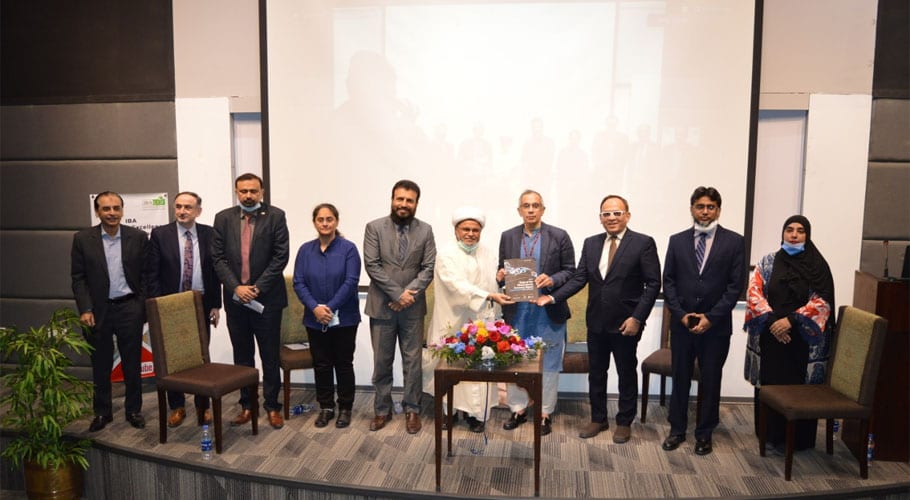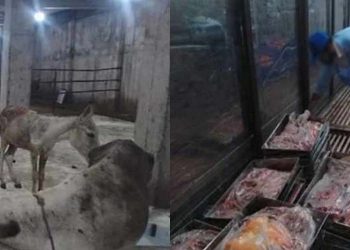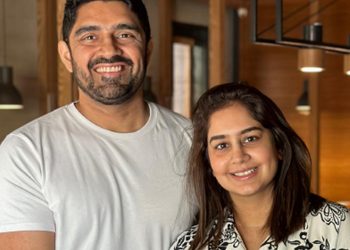KARACHI: Advisor to the Prime Minister on Institutional Reforms & Austerity, Dr Ishrat Husain has highlighted that 80 percent of the halal market is held by non-OIC countries and delved into the reasons Pakistan is lagging in the halal market.
This he said while addressing the launching of State of the Global Islamic Economy Report (SGIE) 2020/21 with the theme ‘thriving in uncertainty’Institute of Business hosted by Administration (IBA) Karachi Center for Excellence in Islamic Finance (CEIF).
The launch event was held in collaboration with the Halal Development Council (HDC) Pakistan and in partnership with Dinar Standard, a US-based research and advisory firm.
The guests and speakers at the event included the Executive Director (ED) of IBA, Dr. S Akbar Zaidi, CEO, Halal Development Council (HDC) Pakistan, AsadSajjad, CEO, Dubai Islamic Economy Development Centre (DIEDC), Abdulla Mohammed Al Awar and the CEO and Managing Director of Dinar Standard, Rafi-uddinShikoh.
Dr Ishrat further elaborated that Pakistan and other Muslim countries can be the major players in these two trillion-dollar industry. He said that the global halal food, pharmaceuticals, and cosmetics is at $255 billion in exports and presents Pakistani exporters with a tremendous opportunity to tap into.
“Currently, our exports in this segment are a mere $2.6 billion (estimate in 2019) which is only 1% of this opportunity. With a strategic focus on these export markets, we can certainly grow our exports,” he added.
“In these uncertain times, the Islamic economy, with its ethical and transparent ecosystem, remains a pillar of strength and a guarantee for a better future,” he said.
This year’s report estimates that Muslims world-wide spent US $2.02 trillion in 2019 on halal lifestyle-related food, pharmaceuticals, cosmetics, modest fashion, travel, and media sectors.
The report reveals that while this spending reflects 3.2 percent year-on-year growth, Muslim spending in 2020 is forecast to contract by 8% due to the impact of the pandemic.
However, spending, excluding travel, is forecast to rebound by the end of 2021 and is slated to reach US$2.3 trillion by 2024, at a cumulative annual growth rate (CAGR) of 3.1 percent. Islamic finance assets are estimated to have reached US$2.88 trillion in 2019 and are estimated to remain at the same level in 2020.
Pakistan’s domestics Muslim consumer spend on halal relevant sectors was estimated at $120 billion in 2019 which is the 6th highest globally.
The SGIE report also highlights the social impact developments of Islamic economies in addressing the United Nations’ Sustainable Development Goals, including initiatives addressing the exacerbated poverty and food security crisis from the COVID-19 pandemic.
Malaysia leads the report’s Global Islamic Economy Indicator ranking while Pakistan has been ranked 8th out of 81 countries.
Dr. Zaidi spoke about the role of the IBA Centre for Excellence in Islamic Finance to promote the halal economy and provides training to industry professionals, shariah scholars and board members of financial institutions.
Mr. Rafi-uddin said, “This year’s SGIE report highlights the emerging opportunities for Pakistan that stand out amidst the repercussions of COVID-19”.
The 33 ‘signals of opportunities’ identified in the report, include the tokenization of sukuks within Islamic fintech and accelerated digital transformations across all sectors prompted by the COVID-19 pandemic, he added.





































